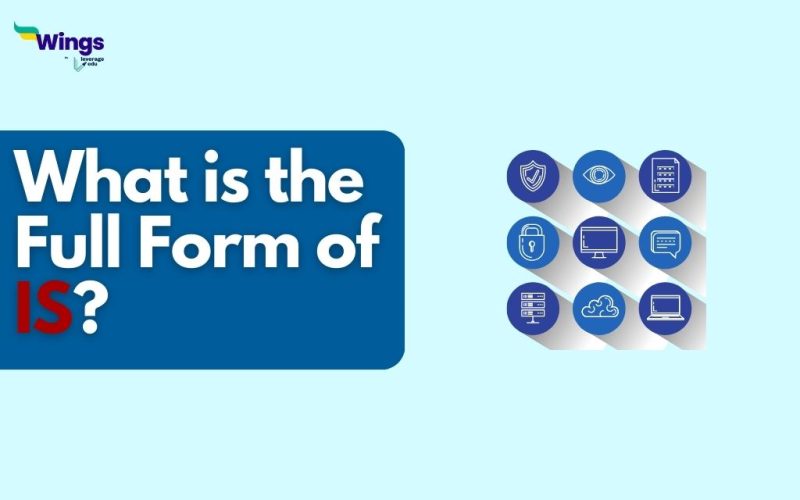IS full form is an Information System. An IS refers to collecting, transforming, organizing, archiving, and analyzing information. It comprises four components, which are functions or structure, tasks, technology, and people. Information Systems are available in various sizes and shapes to meet the needs of an organization. Each IS aims to facilitate operations, decision-making, and management. These are often developed to assist human beings in carrying out tasks for which they are insufficiently prepared. Such tasks or activities include complex calculations, data handling, concurrent processing, etc.
Also Read: Information Technology: Building A Career In It
Important Components of Information System
Table of Contents [show]
A computer-supported IS uses computer technology to perform a few or all of its functions. To execute its functions, an Information System requires the following essential components:
- Hardware like CPU, keyboard, and monitor operate together to take input, process data, and display information.
- Software that allows hardware to process information and database.
- Network system that serves as a connection between different computer systems.
- Database that refers to groups of connected tables or files containing imperative data
Also Read: MBA in Information Technology
Examples of Information Systems
Some of the common examples of Information Systems are as follows:
- Geographical Information System (GIS)
- Societal Information System (SIS)
- Data warehouse
- Decision support systems, Expert Systems, and Intelligent systems
- Multimedia Information Systems
- Management Information System (MIS)
- Enterprise Resource Planning (ERP)
- Automated office search systems
Also Read: Cloud Computing Courses
Functions of Information System
The key functions of an IS are mentioned below:
- Data storage: Collects, stores, and organizes data and information.
- Data processing: Manipulates, analyzes, and transforms data into meaningful insights.
- Information retrieval: Allows users to access and retrieve data quickly and efficiently.
- Decision support: Assists in making informed decisions by providing relevant information.
- Communication and Collaboration: Facilitates sharing and exchanging information among users.
- Automation: Streamlines routine tasks and processes, enhancing efficiency and productivity.
- Reporting: Generates and presents data in a structured format for analysis and decision-making.
- Security: Safeguards data and information from unauthorized access or breaches.
- Integration: Enables seamless connectivity between different systems and applications.
- User interface: Provides a user-friendly platform for interaction with the information system.
Also Read: Basic Computer Courses List
Other Full Forms of IS
- Islamic State
- Interior Service
- Internet Service
- Internet Scheme
- International Standard
This was all about the Full Form of IS. Visit our Full FormPage to discover more intriguing articles about full forms. You can also get a consolidated list of 300+ full forms here! Get in touch with the experts at Leverage Edu in order to kickstart your study abroadjourney!
 One app for all your study abroad needs
One app for all your study abroad needs















 45,000+ students trusted us with their dreams. Take the first step today!
45,000+ students trusted us with their dreams. Take the first step today!
